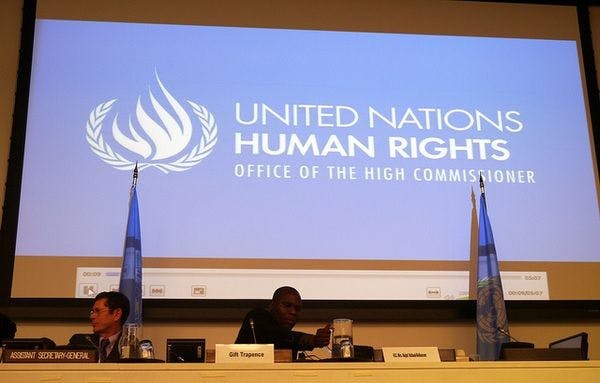Comité de Derechos Humanos de las NN.UU. deplora la respuesta de Indonesia a su invocación para detener las ejecuciones por delitos relacionados a drogas
La invocación formulada en 2013 por el Comité de Derechos Humanos de la ONU para que Indonesia ponga fin a la práctica de ejecutar a prisioneros por delitos relacionados a drogas, no impidió las acciones de este país, las mismas que han sido clasificadas como de Grado E, lo cual significa que van en contra de las recomendaciones del comité. Más información, en inglés, está disponible abajo.
Suscríbase a las Alertas mensuales del IDPC para recibir información sobre cuestiones relacionadas con políticas sobre drogas.
The UN Human Rights Committee has given Indonesia the lowest possible evaluation for its failure to respond to the Committee’s call in 2013 to stop executing prisoners for drug-related crimes.
After a regular review of Indonesia’s human rights record, the Committee in August 2013 urged the State to reinstate the de facto moratorium on the death penalty and to ensure that, if capital punishment was maintained, it was only for the most serious crimes, which do not include drug-related offences. The Committee also called on Indonesia to review its legislation so offences involving narcotics were not punishable by the death penalty.
In a follow-up evaluation of Indonesia this week, Committee members voiced concern at the recent executions in Indonesia and regretted that the State had not amended its legislation as requested. They awarded Indonesia a rare E grade on the scale of A to E, where A is largely satisfactory and E indicates the measures taken go against the Committee's recommendation.
Indonesia had argued that, given the severe impact and the challenges posed by drug-related crimes to the nation’s survival and its young generation, it considered such offences as among the most serious to which the death penalty may apply.
Article 6* of the International Covenant on Civil and Political Rights (ICCPR), to which Indonesia is a State Party, does allow for the death penalty in certain very restricted cases. The Committee has repeatedly stressed that drug-related offences are not such cases and that capital punishment for drug-related offences does not comply with article 6 of the Covenant.
The Human Rights Committee monitors implementation by States Parties of the ICCPR by means of regular review and, where applicable, a follow-up procedure to analyse a State’s response to the most pressing issues.
The Committee also urges all States to ratify the Second Optional Protocol to the Covenant, which aims at the abolition of the death penalty. In 2013, it called on Indonesia to do so.
Click here to read the full article.
Keep up-to-date with drug policy developments by subscribing to the IDPC Monthly Alert.
Temas
Regiones
Perfiles relacionados
- United Nations
